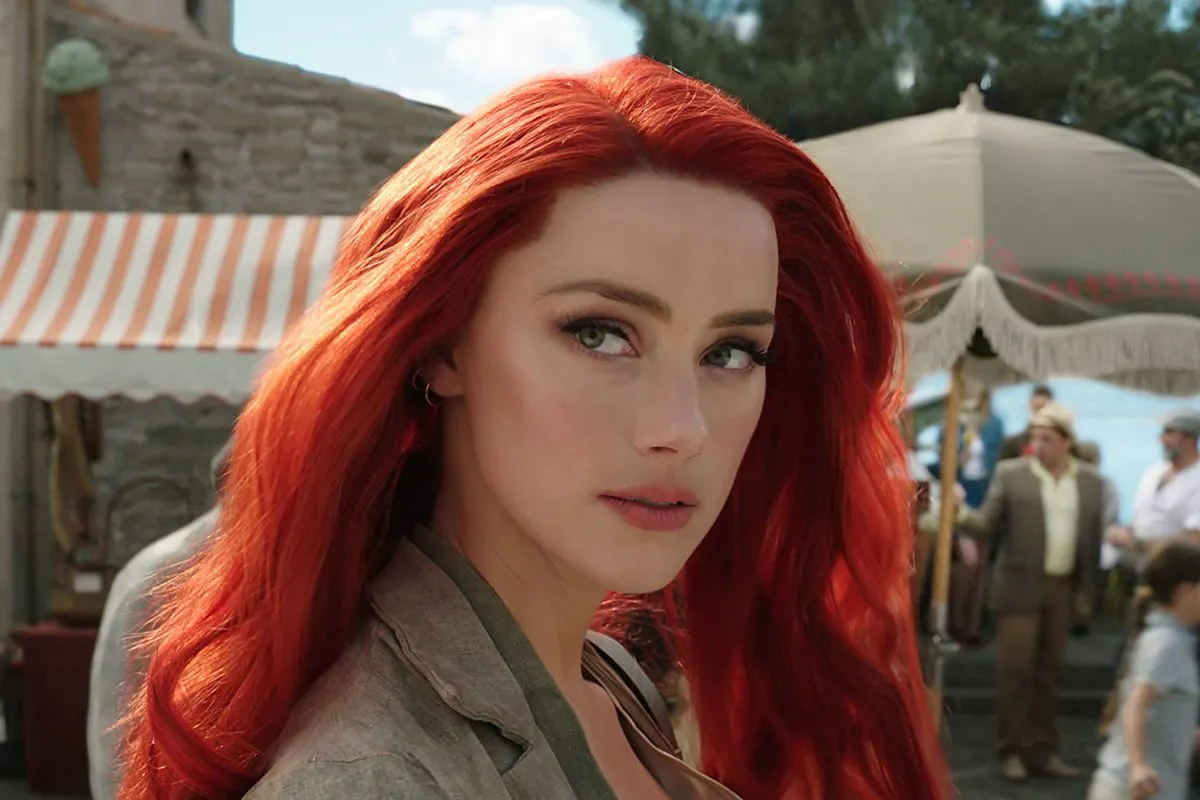Amber Heard Writes Op-Ed About #MeToo and the Fallout From Coming Forward With Allegations Against Johnny Depp

Two years ago, Amber Heard came forward with domestic abuse allegations against Johnny Depp. She did everything that a victim is “supposed” to do to insure belief: she had photos and police reports and proper documentation.
And yet, people still cast doubt on her story and her former partner is cast in a major franchise (Fantastic Beasts) as the primary antagonist; Warner Bros scheduled their panels right after each other at SDCC, therefore allowing the possibility that they would interact. As Heard’s latest film, Aquaman, opens in wide release, she has published an op-ed with the Washington Post on her experience coming forward and the steps we need to take to make the world safe for women.
Heard speaks about being exposed to abuse and the systems of power that allow it from a very young age, but that she had the “rare vantage point” of being able to see how these systems protect men when she stepped forward. She wrote, “Friends and advisers told me I would never again work as an actress — that I would be blacklisted. A movie I was attached to recast my role. I had just shot a two-year campaign as the face of a global fashion brand, and the company dropped me. Questions arose as to whether I would be able to keep my role of Mera in the movies Justice League and Aquaman.”
She never mentions Depp by name, or mentions his continued career growth either. Instead, the majority of her op-ed is devoted to speaking about steps we can take to legally protect more women from enduring what she had gone through. She speaks about the Violence Against Women Act and pushing back against Betsy DeVos’s attempt to weaken protections for college students reporting sexual assault. She closes her essay by writing:
I write this as a woman who had to change my phone number weekly because I was getting death threats. For months, I rarely left my apartment, and when I did, I was pursued by camera drones and photographers on foot, on motorcycles and in cars. Tabloid outlets that posted pictures of me spun them in a negative light. I felt as though I was on trial in the court of public opinion — and my life and livelihood depended on myriad judgments far beyond my control.
I want to ensure that women who come forward to talk about violence receive more support. We are electing representatives who know how deeply we care about these issues. We can work together to demand changes to laws and rules and social norms — and to right the imbalances that have shaped our lives.
Heard’s words are strikingly powerful. She deserved better when she came forward, and she deserves better now. What she endured goes beyond the pale, and yet it is similar to what many women endure when accusing powerful men. Consider the torments suffered by Dr. Christine Blasey-Ford after she came forward to speak against Brent Kavanaugh (and the continued issues Blasey-Ford faces). No woman should have to go through this when they are trying to speak up about what happened to them.
Believe women. That is the only message we can impart here. Believe women, and trust that false accusations are a rarity. Just because someone accuses a popular celebrity of abuse does not mean they’re seeking attention. Only if we believe women can we bring meaningful change in the way we approach the ongoing problem of sexual assault and harassment that is upheld by social structures.
(via the Washington Post, image: Warner Bros)
Want more stories like this? Become a subscriber and support the site!
—The Mary Sue has a strict comment policy that forbids, but is not limited to, personal insults toward anyone, hate speech, and trolling.—
Have a tip we should know? tips@themarysue.com